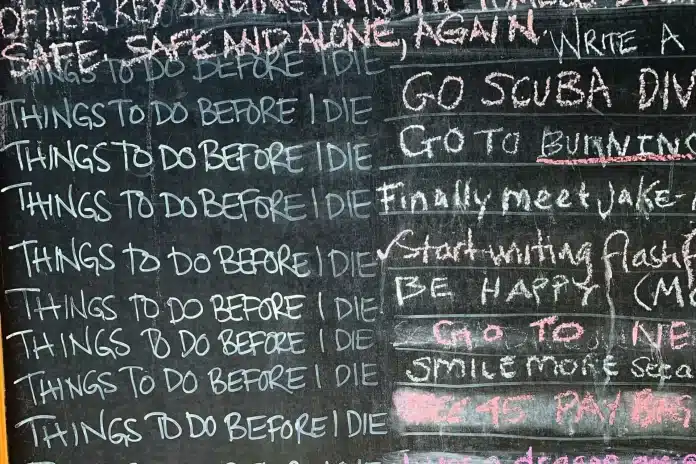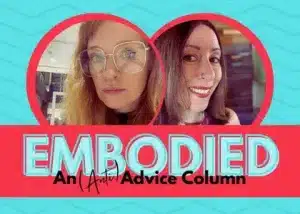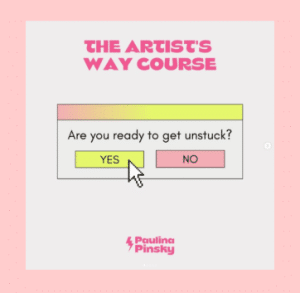The attic was long overdue for rigorous sorting if not deep cleaning. An oversized walk-up with easy access that was rarely assessed, the attic space had become a default location for anything (and everything) without a designated place. Earlier this summer, I spent an unseasonably cool afternoon sorting through boxes of clothing, mostly outgrown, with few fabrics worthy of much contemplation, and stacks of papers from a time before our world was fully digitalized.
As I sorted, I stumbled across school reading lists that I don’t remember saving. I’ve always been a fan of books, lists, and writing; truth be told they’re my love language, but that’s too close to home and overly sentimental. While saving the list may have been intentional, the act was more likely nothing more than an effort to move never-ending clutter. I never gave much thought to how simple it was to add more stuff to the attic’s heart (and warmth). The attic’s availability and familiarity opened up an opportunity for both delayed and default reactions.
I’d regularly store undersized coats, oversized toys, and unused stacks of most anything (Peanuts figurines and crib mobiles, for example), always saying I’d sort and recycle when I had the time. The attic made it easy to defer all decisions, even those in list form, of worth, relevance, and currency. But now, with sorting on my weekly to-do list, an old reading list caught me by surprise, as book lists often do, and I paused my, until then, semi-automated routine. Books, including in list form, had always been that for me – a reminder to be and to believe in possibility.
When my children were young, we’d review summer reading book lists religiously. We’d check all titles and reconcile those for which we had copies and those which we’d need to borrow or renew. Like The Very Hungry Caterpillar, we were in perpetual states of readiness to consume — words as delivered, school assignments as listed, and comic strips as written. Charlie Brown and Lucy Van Pelt, along with my children, were regular sidekicks. We’d read the Sunday morning cartoons, delivered to our doorstep early mornings, religiously.
As my children are, now, nearly grown, I’m much less likely to know what they read. I don’t know when the bookshelves turned to dust-collectors, but unless my kids order something from our shared Amazon account or happen to mention a book club pick or a surprise find in a free library (a Peanuts collection a recent swap), we’ve stopped, somehow, regularly sharing the words and writings that inhabit our coat pockets. I hadn’t realized until the book lists knocked.
That afternoon, I cleaned in an empty home. I flipped through the newly rediscovered book lists and became less eager to refresh the space and more nostalgic for passed days. As my eyes scanned the titles, I was struck by just how similar the contents were to each other and, also, how male-dominated. Somehow, the distance and the change in circumstance prompted me to re-see what I had regularly consumed as ordinary. Suddenly, I felt a bit like Lucy Van Pelt.
Lists had always been something I’d receive and then treat as sacrosanct – at doctors’ visits, school check-ins, and other socially constructed things. When my children were young, I don’t know if it was that I was too busy to question or still too unsure of my own place in the world. I didn’t believe anyone would pay five cents for my opinion. I also did not think of school-sponsored lists as something which I could, or should, co-create. Now, I’m not any less busy, but I am much less trusting of authority.
Suddenly, the same lists I had previously treated as a guide to stay on track began to look different to me. I thought, too, of how different each of my four children’s interests were (and remain). Yet over a span of over eighteen years, they were largely assigned the same summer readings. The lists maintained remarkable consistency. Works like Several Short Sentences About Writing were a regular a bookend to classics like All the Kings Men, The Outsiders, and Call of the Wild. Each appeared yearly on lists with male voices, perspectives, protagonists, and plot directors, at the center.
At one time, in the hustle and hustle of a household on steroids, I might have shuffled the pages and continued. Now, something, something had changed. As I reviewed recycled lists (World History, Psychology, and English Lit), I saw patterns I hadn’t before recognized. Why weren’t more women authors short listed and why had I not before realized?
Alongside the lists, there were doodles formed of my daughter’s careful loops – squiggles of butterflies in beds, smiling pigs playing baseball, and talking dandelions. What I had before seen as idle sketches I now saw as a voice. Some of the sheets had tallies with my children’s initials at the top. Reading was as much a shared camaraderie as a condition. At the time, the school required all minutes to be tracked. There were also signs of distractions, a few rounds of Tic-Tac-Toe and Hangman.
A small game of Hangman, Charlie Brown’s Lucy Van Pelt sketched and penned in a right margin, prompted more unexpected reflections. How come we rarely read about Lucy’s in real-world form? I thought, for example, of Lucille Ball, the first woman to head a TV production company and activists like Lucy Burns and Lucy Stone. Instead, All the King’s Men, presents a single type of Lucy – Lucy Stark, wife to Willie, who repeatedly sees her opinions ignored.
The lists’ hand-drawn doodles made me think of Nina E. Allender, an artist, cartoonist, and women’s rights activist. Allender popularized new ways of seeing women and reimagined what it means to be a girl. Allender was a leader of the National Women’s Party, alongside others like Lucy Burns and Lucy Gunner Branham.
I studied the cartoons penned by my children. Where I’d once seen a butterfly, I now saw interlocked questions and cocoons in the past tense. I wanted to know why Nina Allender and a whole host of Lucy’s and women like them were not on the roster.
I’ve since run some fresh searches. In the cooler air of my kitchen, I’ve learned that little has changed. The site domains are updated yet the book rosters are largely the same. Much like the attic had become my default, the lists themselves had become static. Even now the assigned readings posted on my local district’s website are surprisingly uniform. Our district is not alone. Quick research reveals striking similarity and sustainability across years, lists, and titles. The Wayback Machine confirms. The book list persists as an easily scalable and sustainable device and tool to perpetuate the same.
How had I not recognized the consistency in and across lists over time? Default reactions denied, I had been on autopilot, focused on getting through each day. I readily consumed and complied, all while doing my best to meet all trains, planes, and automobile deadlines – Oh my. The lists, and their patterns, were as much in need of sorting and deep cleaning as the attic, yet, as expectations associated with required readings were school-authorized, I had relied on their expertise. Why?
It’s taken me years, but I’ve finally begun to understand the meaning of voice, including my own, the power of writing to make meaning, and the importance of making sure all lists are marked by more than consumption. As my kids grew, I drafted (and regularly checked) lists for everything – meal prep, carpool, who needed new socks. But the school’s recommended reading list, I left untouched. I accepted the canon rather than questioned it. Not until my children were all nearly grown, and I was cleaning out an attic did I begin to appreciate the dangers of as-is conditions.
As my children have grown, I became increasingly curious about pedagogy and curriculum. I went back to school and now teach full-time. I’ve also found more space to pursue my own interests and writing, and, with time to reconsider default reactions, I’ve found many of my choices and reactions surprising. I wish I had questioned sooner and questioned more. How had I not known?
Thankfully, I never lost my love for reading. Reading led me to teaching and teaching led me back to writing. Mothering has been an integral part of it all. Like the Lucy’s I came to know through their written words, I joined a movement to more deeply engage in the question and meaning of education and change. Over the past year, I’ve been reading and writing about lesser-known women’s suffragists. Suffragists about whom I knew very little. Suffragists like Lucy Burns, Lucy Stone, Amelia Jenks Bloomer, and Nina Allender. Lucy Burns endured more jail time than any other suffragist. Lucy Stone was a prominent orator, abolitionist, and suffragist. Amelia Jenks Bloomer was the first female editor of a newspaper. Nina Allender created more cartoons than any other. Their names and their stories, along with so many more, were neither on the recommended book list nor in the school-issued textbooks.
In my own reading and writing, I am less interested in Darwin’s Theory of Evolution than the lives of women subject to it. This past Spring, I joined an online writing group. I submitted a draft in progress, a novel following the life story of Lucy Burns, the most-jailed suffragist, and my writing teacher expressed surprise at the character’s strength – “I never knew,” she said, then added, “That’s what writing is for.”
For years the only writing I did was signing quarterly report cards. Now, I write daily across genres – poetry, fiction, creative non-fiction, and more. Writing has been a way for me to engage, to learn, and to inform. It’s a form of social activism, in forms I understand. That’s one of many reasons why I’m drawn to novels in verse (a quiet act of rebellion against form, pomp, and circumstance) and Nina Allender’s work. As a cartoonist, Allender used images to say what others couldn’t (or wouldn’t).
Motherhood changes lots of things. I don’t believe I’d have ever become a teacher if not for motherhood. I also don’t believe I’d have understood the depths and breadth of the challenges of being a teacher without the experience of raising my own children. Now, I believe that part of my role as a mother and teacher is to help write new stories and ensure less-known stories are told.
Most of all, motherhood has been the most powerful reminder of the continued importance of engaging with lesser-known stories and lists yet-to-be-written, I thank suffragists, Lucys, and others like them. As I continue to sort through boxes, prior lists, and telling markings, I hope my students and my children find their Lucy. I also hope they write new lists and write bravely.
***
Our friends at Circe have launched an anti-advice column and it is fire!
Find details on how to ask Gina and Emily for advice and let us know what you think!
***
Looking to jumpstart your writing? Need to reignite your creativity?
Paulina Pinsky has reopened enrollment for her year-long The Artist’s Way course.
Designed to transform your creativity from stuck and frustrated to unblocked and an endless source of inspiration, for any creative journey you can dream of.
Click below for more information and let Paulina know we sent you!


